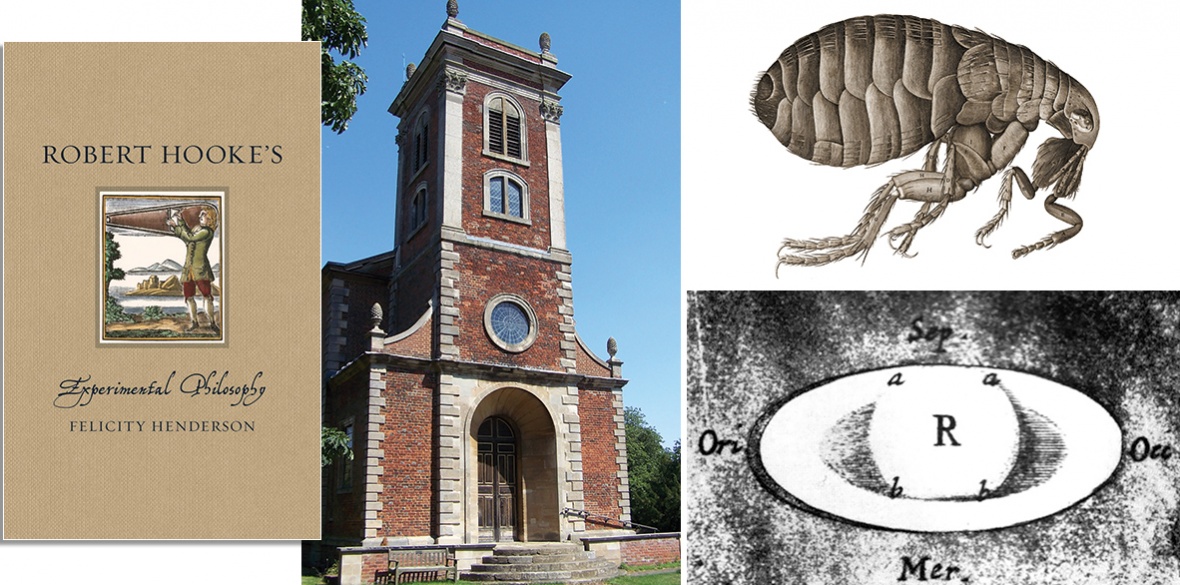This is the last article you can read this month
You can read more article this month
You can read more articles this month
Sorry your limit is up for this month
Reset on:
Please help support the Morning Star by subscribing here
Robert Hooke’s experimental philosophy
Felicity Henderson, Reaktion Books, £17.95
ROBERT HOOKE (1635-1703) was one of the key figures in the development of science in Britain. This excellent study, illustrated with Hooke’s own drawings and diagrams, and with pictures of instruments he designed, expounds Hooke’s approach to science.
He was one of the first to see that the new experimental philosophy – what we today call science – had the potential to improve human life beyond recognition.
In 1662 he was appointed curator at the newly created Royal Society. He was the Society’s first paid employee, and he remained one of its central figures for the rest of his life.
As a boy he had made “little mechanical toys,” like a working clock made of wood and a model ship complete with rigging and guns. Later he helped to build a successful air pump, and he made improvements to the development of the microscope. These experiences confirmed to him that instruments would be a key to scientific progress.
He was also a city surveyor, a Gresham College professor, and an architect. With this range of experience, he was uniquely positioned to take advantage of London’s place as a hub of mercantile activity, manufacturing, and information exchange.
Hooke worked closely with some of London’s most successful scientific instrument makers. He was unique among his scientific peers in being willing to learn from skilled tradesmen at first hand, and in putting this knowledge to use in the service of scientific work.
He emphasised the practical aspects of the scientific method – funding, logistics and communication. He was one of the first to make sustained use of what would go on to become the primary form of scholarly publication, the scientific journal.
He helped to form a new scientific method, prioritising experiment and observation as ways to understand the natural world. He referred to the data gathered by experiment and observation as the building materials for constructing knowledge.
But he know that merely mechanically adding data was not enough. He asked: “When this mighty Collection [of data] is made, what will be the use of so great a Pile? Where will be found the Architect that shall contrive and raise the Superstructure that is to be made of them, that shall fit every one for its proper use?”
Hooke urged scientists to experiment both with the phenomena of the natural world and with their own scientific methodology. He realised that ascribing natural functions to unknowable and ungovernable forces meant dooming humanity to remain in ignorance. He believed that “Phenomena do proceed from the quantity of matter and motion” and that the two “Powers” of nature were matter and motion.
He promulgated what he called “an Hypothetical Scepticism,” a persistent effort “to impose upon ourselves a Disbelief of every thing whatsoever, that we have already imbraced or taken in as a Truth.”
He argued against the Bible’s account of creation and its notion of unchanging species, asserting that “there have been in former times of the World, divers Species of Creatures, that are now quite lost, and no more of them surviving upon any part of the Earth.” Other species now living had not been present “from the beginning.”
He tried to convince his colleagues that fossils were organic in origin. His theories on fossils supported his belief in an ever-changing Earth.
At a Royal Society meeting in 1675 a colleague argued that human flight was impossible. Hooke “suggested that what nature Did not supply art and Reason could.”
In his life’s work, he indeed united “art” — mechanical skill — and reason.
This is a very readable book, and well-researched. It would be an extremely useful introduction to the developing scientific revolution in 17th-century Britain.







